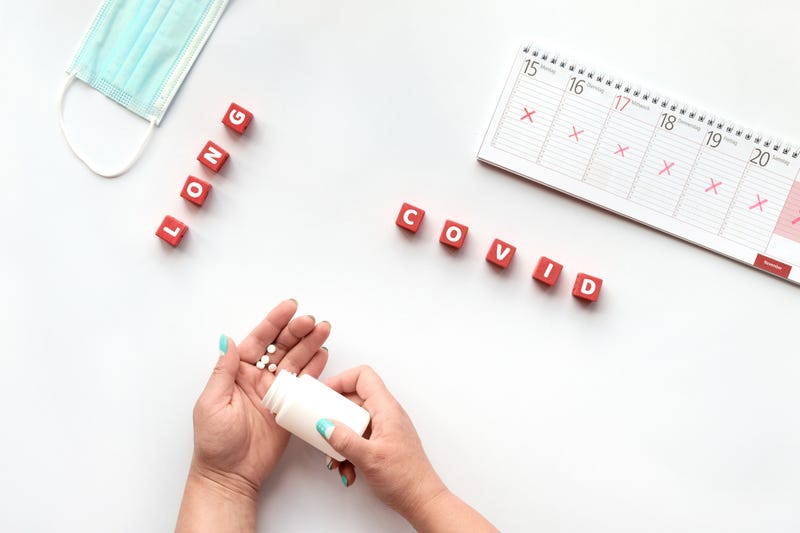
Ryan Langlois is an Associate Professor of Microbiology and Immunology at the University of Minnesota. He works at the antiviral drug discovery lab, or AVID, where researchers are developing antivirals for life threatening infections.
“There is optimism that taking drugs that are like Paxlovid, improve them, make them work differently, or make them work more broadly,” says Langlois. “Again, the biggest issue with long COVID is that it's still relatively enigmatic.”
Professor Langlois admits it could take four years to develop effective drugs for long COVID.
Earlier this week, we first introduced you to Elise De Pew. After recovering from a three week battle with COVID the 37-year old learned the virus had been lying dormant in her body.
“To go from being such a highly functioning person, physically I mean, really was on the go all the time, took care of so much stuff for my family, type-A personality, to go from that to being almost completely helpless was really, really hard,” De Pew explains.
She went to her primary doctor who referred her to a clinic that specializes in long COVID.
“And at this point I was so sick so consistently that I had dropped out of my master's program,” De Pew said. I couldn't do any chores or anything at home. I couldn't take my dog for a walk. I was barely keeping up at work. That was like my main thing. I just don't want to have to lose my job.”
Since she didn't find relief, De Pew decided to turn to naturopathic medicine.
“I was going to explore naturopathic medicine and see if there was a light at the end of the tunnel,” she said.
After working with her naturopathic doctor for six months, De Pew says she has found that light at the end of the tunnel.
“She worked with me on lifestyle modifications,” De Pew said. “So, diet supplements, stress, and I am almost completely better.”
Experts including immunology professor Ryan Langlois say when it comes to alternative medicine, no harm, no foul.
“Certainly there is a lot of traditional medicine out there that has been shown to be able to reduce things like inflammation,” says Langois. “You know, the evidence isn’t there for treatments for long COVID, they aren't good yet. So we're still in really dark days of treating long COVID.”
See all parts of WCCO's Five-Part Series on Long-Haul COVID here.
LISTEN on the Audacy App
Sign up and follow Audacy
Facebook | Twitter | Instagram


